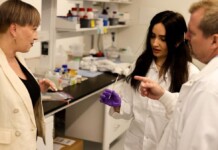EU’s Erasmus Study Exchange Programme has become a catalyst for creating a common cultural identity among young Europeans and future generations.
A study released by the European Commission that measured the program’s impact on a sample of over 80,000 students showed Erasmus has an extremely positive effect on both the job prospects and the cultural tolerance of its participants.
What is even more encouraging, though, is that a third of the participants end up in transnational relationships, setting up cross-cultural families. A minimum of one million trans-European babies are estimated to have been born from these unions so far. What we may be witnessing here is the creation of a new generation of Europeans who do not define themselves by nationality and difference, but who, rather, renegotiate their identities within various cultural contexts, worldviews and sets of values. Set up in 1987, the student exchange program has since helped more than three million students study overseas and lay the foundation for a more tolerant future within a culturally united Europe.
Named after the well-travelled Dutch philosopher Desiderius Erasmus of Rotterdam, it covers the 28 EU countries as well as Iceland, Liechtenstein, Norway, Switzerland and Turkey.
In time when good news about European integration is scarce, this comes as an important message that the European project has much further-reaching integrative potential. While politicians and technocrats in Brussels busy themselves with economic indicators and new directives, love can prove to be an equally efficient tool for constructing a common Europe.




















